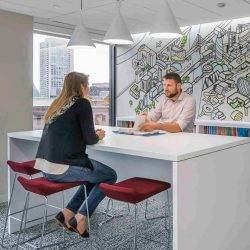April 9, 2019
UKGBC issues circular economy guidance for construction clients
 New guidance has been launched by the UK Green Building Council (UKGBC) to assist client organisations to include more ambitious circular design and construction best practices in project briefs for non-domestic projects. It addresses the commercial realities associated with making this practically happen and provides support and evidence to assist clients in setting clear strategies that ensure budget, project timescales and risks are all minimised and mitigated. The guidance may also be helpful for those in the supply chain looking to support construction clients on their journey towards specifying and practically applying circular economy principles.
New guidance has been launched by the UK Green Building Council (UKGBC) to assist client organisations to include more ambitious circular design and construction best practices in project briefs for non-domestic projects. It addresses the commercial realities associated with making this practically happen and provides support and evidence to assist clients in setting clear strategies that ensure budget, project timescales and risks are all minimised and mitigated. The guidance may also be helpful for those in the supply chain looking to support construction clients on their journey towards specifying and practically applying circular economy principles.
















 The government is being encouraged to implement mandatory ethnicity pay gap reporting when it announces the outcome of its ‘
The government is being encouraged to implement mandatory ethnicity pay gap reporting when it announces the outcome of its ‘

















March 6, 2019
It’s not a skills gap, it’s a diversity gap
by Agata Nowakowska • Comment, Workplace
As digital transformation impacts organisations in every industry, the workplace as we know it is evolving fast. For IT leaders, the accelerated rate of technological change means the pressure is on to deliver, manage and secure new platforms. But the wider ramifications of digitalisation projects are proving profound, leaving business executives facing a dilemma. (more…)